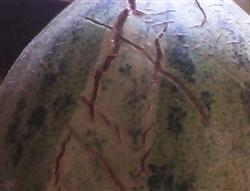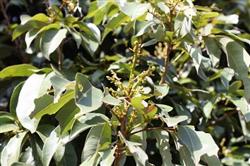How to grow cherry tomatoes in greenhouse?

How to grow cherry tomatoes in the greenhouse? Hope that experienced netizens can help introduce cherry tomatoes with high ornamental value and rich nutritional value; they can be used as vegetables on the dinner table and eaten as fruit on the fruit plate. Suitable for sour and sweet, unique flavor, deeply loved by people. Therefore, the farming network has sorted out the planting techniques of cherry tomatoes, which are listed in detail below for netizens' reference. Step 1, the selection of planting soil and planting time of cherry tomato: 1. Soil selection: it is suitable to use loam and clay soil with good water conservation, sufficient sunshine and good ventilation in solar greenhouse. 2. Planting time: cherry tomatoes are generally cultivated in spring in February, planted in mid-late March, and picked in mid-late May. The seedlings were cultivated in autumn in July, planted in September and harvested in November. Step 2, Cherry Tomato Seedling: 1. Cherry Tomato seed disinfection and seed soaking method: scald the seeds with 50 ℃ 55 ℃ water, stir continuously, until the water temperature is 25 ℃, then soak 6 Mel for 8 hours, remove it and wrap it with a wet cloth, put it in 27Mue 30 ℃ temperature to accelerate germination, rinse once a day. Seeds can be sown after whitening. 2. Preparation of soil in seedling bowl: 40% rotten livestock dung or peat soil, 40% garden soil, 10% large dung noodles, 10% slag, evenly sifted, mixed with calcium superphosphate 1m 2 kg per cubic meter, fully mixed nutrient soil can be loaded into nutrition bowl. Step 3, the sowing of cherry tomatoes: generally speaking, the sowing amount of cherry tomatoes per mu is 30ml / mu and 15g / m2, which can be sown in a seeding bed of 10m / m. Spread 8 cm thick nutritious soil in the seeding bed, fill with enough bottom water, and then add 15 grams of fine soil with 10 grams of five-generation mixture per square meter (40% pentachloronitrobenzene and 70% zinc 5 grams). After fully mixing well, sprinkle 1x3 as the subsoil before sowing, cover the soil with 2x3 after sowing, cover the soil with 1cm after sowing, and cover with plastic film. Remove the plastic film when 60% of the seeds emerge. When the seedlings grow two true leaves, they can be transplanted into a nutrition bowl. Step 4. Seedling management of cherry tomato: 1. Growth temperature of cherry tomato: 30 ℃ in daytime and 24 ℃ at night is favorable for seedling emergence. It is suitable for 25 ℃ in daytime and 17 ℃-18 ℃ at night after emergence. 2. Light requirements of cherry tomato: the nursery bed should choose the place with strong light in winter and spring. Summer seedlings should be ventilated to prevent overgrowth, noon light is too strong to properly shade, to prevent roasting seedlings. 3. Water requirement of cherry tomato: water management at seedling stage. Keep the soil moist after sowing and water thoroughly when transplanting seedlings. After the slow seedling, the topsoil is watered when it is dry, the soil moisture is maintained, and the air relative humidity is controlled between 60% and 70%. Step 5, the planting of cherry tomato: 1. Planting time: generally in spring, the soil temperature of 10 cm in the solar greenhouse is above 15 ℃ and stable for 7 days. It should be planted in sunny morning in spring and cloudy or sunny afternoon in summer. 2. Planting method: planting in dark water is better. That is, first dig holes, pour enough bottom water, and then put the seedling belt soil into the planting depth to bury the soil. 3. Planting density: generally large row spacing 100 cm, small row spacing 60 cm, double trunk pruning plant spacing about 50 cm, if single stem pruning plant spacing about 40 cm. Step 6. Management of cherry tomato after planting: 1. Branch arrangement of cherry tomato: double-trunk pruning is often used in cherry tomato, that is, one side branch is selected under the first inflorescence, and the other side branches are removed. When the lateral branch is removed, it should be removed in time when it grows to 6ml / 8cm. If the fork is too early, it is easy to cause premature senescence of the plant; if the fork is too late, it is easy to cause nutrition consumption, plant overgrowth, and affect fruit setting. During the annual cultivation in the solar greenhouse, the plant should drop the vine and disk the vine in time after growing tall, and get rid of the withered and old leaves below the fruiting branch in time. 2. The growth temperature of cherry tomato: when cultivated in winter and spring, the key in the early stage is to prevent freezing and protect seedlings, and strive to slow down the seedlings as soon as possible. There was no ventilation 4 days after planting, and the indoor temperature was maintained at 30 ℃ during the day and 18 ℃ at night. After slowing down the seedlings, the seedlings were 20 ℃ 25 ℃ during the day and 13 ℃ 15 min at night. When the first inflorescence begins to blossom, properly reduce the indoor temperature, control vegetative growth, promote reproductive growth, and coordinate the relationship between seedlings and fruits. Summer cultivation should pay attention to strengthen ventilation to prevent high temperature overgrowth. 3. Fertilization and watering of cherry tomatoes: before cherry tomatoes bear fruit, the planting water must be watered thoroughly before fruiting, and the slow seedling water and vine water should be properly replenished according to the soil and plant growth potential, and the water should be controlled as appropriate to benefit and strengthen the seedlings, especially when it is blooming. The phenomenon of falling flowers should be avoided, and the time of topdressing should be determined according to the plant growth and the application of base fertilizer. If the seedling growth is not good enough, it is necessary to apply nitrogen fertilizer properly, combined with a small amount of phosphorus and potassium fertilizer. Cherry tomato after fruit sitting: the first ear fruit should end squatting seedlings in time, watering and fertilizing in time to promote fruit development. After that, topdressing should be done with phosphorus and potash fertilizer, and nitrogen fertilizer should be applied as little as possible. Watering and topdressing every 5 min 7 days depending on soil moisture and plant growth can also be properly supplemented with potassium dihydrogen phosphate, potassium treasure and other foliar fertilizers. Watering should be uniform, not suddenly large or small, to avoid sudden changes in soil dryness and humidity, otherwise there will be hollow fruit after fruit cracking. Note: cherry tomatoes must be dipped in flowers in winter and spring. Step 7. Pest control of cherry tomato: aphids and whitefly can be sprayed with 10% imidacloprid once every 7 days. Sudden fall disease, blight spray 25% Ruidui wettable powder 800m 900 times or 75% chlorothalonil wettable powder 600 times. Early blight can be treated with 45% chlorothalonil aerosol or 10% Chlorothalonil smoke agent, 200 Mel 250 grams each time. How to grow Cherry Little Tomato the planting environment of high yield cherry tomato
- Prev

How to prevent and cure cracked cantaloupe?
What caused the cracked cantaloupe? How to prevent and cure cracked cantaloupe? Please also know the netizens to help introduce cantaloupe crack melon will occur after sitting to the early stage of milk ripening, in the cantaloupe expansion period is more common, the damage is also more obvious. At the initial stage, small longitudinal cracks are formed, gradually become obvious cracks, and finally.
- Next

How to protect flowers and fruits of litchi?
How to protect flowers and fruits of litchi? What are the ways to make litchi fruitful? Also ask experienced netizens to help introduce the method of litchi if you want to get a good yield, you need to do a good job of flower and fruit protection of litchi, so the land network has sorted out the management methods of flower and fruit protection of litchi, which are listed in detail below for netizens' reference. ...
Related
- Moge, come on! The staff of the peasant association in the producing area of cantaloupe were frightened when the crowd gathered.
- Causes and Solutions of low Fruit setting rate of Apple
- Symptoms and control measures of passion fruit virus disease
- Fruit growing lesson: how do apple orchards keep high yields?
- Can you build orchards in the mountains? What are the pros and cons?
- How to manage the coloring period of Crisson grape?
- This paper introduces the processing technology of two kinds of fig products.
- How much is a month for retired teachers in rural areas by 2020?
- How can strawberry planting increase sugar content? We should pay attention to management in many aspects.
- What are the cultivation techniques on how to improve the yield of golden fruit?

